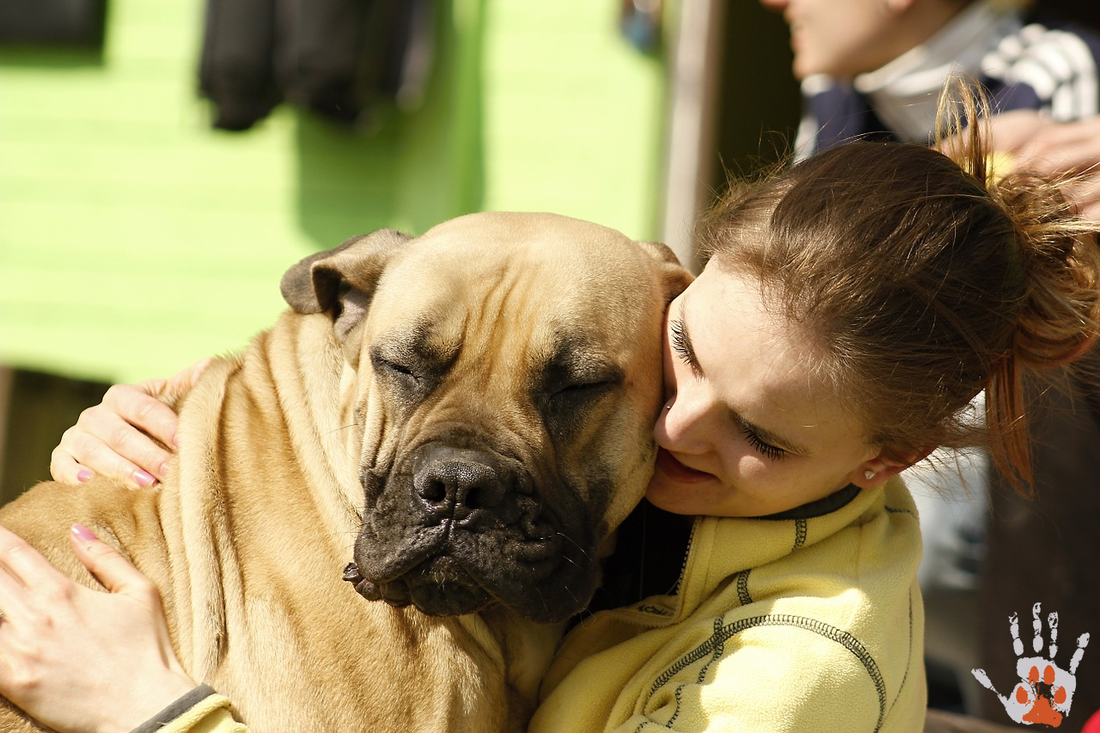|
Criminal Justice Advocacy "I connected with a victim of domestic violence after receiving a police report. The victim had been shot by their abuser and needed assistance with establishing safety and coping with the trauma they experienced. Their abuser has used weapons as a scare tactic throughout their relationship, and the violence has escalated tremendously.
Once connected with the victim, I introduced myself and explained the services provided at BOHCC as well as their rights as a victim. We discussed how they could stay updated on the criminal case. I also gathered additional information about the situation so I could have a complete understanding to better assist the victim. As we were talking, the victim became emotional and started to cry. I immediately stopped asking questions and focused on what the victim needed in that moment. I actively listened to their concerns and how they were feeling. They were frustrated by everything and felt pressured by others. The victim shared with me that they felt as if their feelings were not valid. They were being told how they should feel about the situation and this was causing them to be confused about their own thoughts. I quickly validated their feelings and expressed that they are the only one who went through this experience, so they are the only one who can know what to think about it. I discussed counseling and ensured they had the information for BOHCC’s counselor. The victim started to calm down and felt relieved to hear that their concerns and thoughts are valid. They hadn't been able to be open with someone about the situation, and they were grateful to have someone to talk to about everything. The victim thanked me for listening to them and validating their feelings. They appreciated having someone to talk to without feeling judged. The victim has felt a lot of pressure from various sources and needed to share their thoughts without judgment. I was happy to be a support for the victim and listen actively to their concerns. I will continue to work with the victim as they progress towards safety and self-sufficiency. It feels rewarding to be an outlet that victims can vent to and to be able to provide a comfortable space for them to share their thoughts." Victim Advocate - Beacon of Hope Crisis Center If you or a loved one needs supportive services for domestic violence or sexual assault, call our confidential crisis line at 317-731-6140. In the case of an emergency, contact 9-1-1 immediately. If you would like to learn more about the work we are doing, register and join us during our Virtual Summit on October 26th. #DVAM By: Cheyenne Taylor Domestic violence can take away your strength, your independence, and your feelings of safety. Even after the abusive individual is out of your life, you might find yourself facing conflicting emotions that can harm your mental health. Survivors of trauma are three times more likely to become depressed and often face challenges with anxiety, panic attacks, triggers, etc.
The truth is leaving an abusive relationship does not automatically equate to happiness and health. There is as an adjustment period. Survivors have to learn how to navigate life without the abuse. They have to unlearn behaviors and become comfortable making all their own choices. They also have to come to terms with the fact that the relationship is over. Survivors often feel sadness or grief over the loss of the relationship and those are normal emotions to feel. Whether it be the companionship, the security of a romantic connection, or a simple bond built from trauma, ending an abusive relationship is not as cut and dry as many believe. Healing from past hurts can seem impossible, but many survivors have been there and come out on the other side happier and healthier. It is important that victims know they are not alone. Healing starts from within. Taking care of yourself, prioritizing your happiness and health, and learning to use your voice after being silenced by violence are all crucial steps in the healing process. We are here to help ALL survivors through the steps in any way possible. Leaving is the most challenging part. The rest is healing and becoming the healthier new you. There will be setbacks, and there will be triumphs. We are here to help you through your healing process or to start your healing process. Call our victim advocates at 317-731-6140 to discuss our services that can help you on your journey. These calls are confidential, and all our services are free. By: Savannah Tipton Sexual assault often results in no physical injuries to the victim, but this doesn’t make their experience any less traumatic. After an assault, victims may experience significant short-term and long-term effects.
Effects of Sexual Assault:
Sexual assault is often perpetrated by someone the victim knows (acquaintance, friend, family, etc.). The majority of assaults occur at or near a victim’s home (RAINN). Many of us were taught about “stranger danger” in the past and some people may still believe that no one they know “could do something like that.” Unfortunately, we do not get to live in a world free from danger. However, together we can raise our voices to make a change. Start by believing survivors. If someone discloses they have been sexually assaulted, listen and believe them. If they disclose shortly after an assault, encourage them to get an exam done at the hospital. Sexual assault exams are done for free in Indiana and an experienced SANE nurse (Sexual Assault Nurse Examiner) can collect evidence that may not be available later on. This is also an opportunity for survivors to get medical care, testing, and ongoing support. Referring survivors to community resources is another way to help and you can encourage them to speak with a victim advocate. Victim advocates offer free support, education, and community referrals. Advocates can also answer questions about protective orders and reporting to law enforcement. Want to get more involved? Get out in the community and start volunteering! There are a variety of volunteer opportunities to help survivors near you. Volunteers opportunities generally include fundraising, events, volunteer advocacy, and more. Visit the career tab to learn more about volunteer and internship opportunities at Beacon of Hope Crisis Center. Finally, show survivors you stand with them as an ally by sharing resources, statistics, and other information from services providers. The simple act of sharing a post has the potential to reach someone who may need help. Your voice has power, use it to support survivors. #AllyToSurvivors If you or someone you know is a victim or survivor in need of services, please contact our confidential crisis line at 317-731-6140. Advocates are a confidential source of support available to help survivors. By: Marty Burtt Beacon of Hope Crisis Center’s Foster Pet Program eliminates a very common barrier for domestic violence and/or sexual assault victims. Research has shown that 48% of battered women will delay leaving their abuser because they fear what will happen to their pet(s) after they leave. Pets are a common tool used by abusers to control the victim by threatening, harming, or killing the pet. Our Foster Pet Program gives domestic violence and/or sexual assault victims a temporary, safe home for their furry family members while they work on becoming self-sufficient.
Our volunteer foster families have the unique opportunity to provide much needed help to victims of domestic violence and/or sexual assault. Instead of having to choose between leaving their beloved pet with their abuser, or surrender the pet to a shelter, victims can apply for our program and know that their pet is being loved and cared for until it can come back home. Being a foster family offers the companionship of having a pet, without the lifelong commitment. Every year, 68% of abused women report violence towards their pet from their abuser. Our foster families can give love and affection to pets that have experienced their own trauma. If you are interested in learning more about the program or signing up to become a foster family, please click here. By: Marty Burtt Beacon of Hope Crisis Center’s Foster Pet Program is a unique service that we are proud to be able to offer to our clients. Family pets offer a sense of stability, comfort, and unconditional love that creates a special bond between a family and their pet. In homes with domestic violence and/or sexual assault, the family pet is at a high risk of being abused and/or neglected. Over 71% of battered women reported that their batterers had harmed, killed, or threatened animals to coerce, control, and humiliate them*. Additionally, numerous surveys have reported that 25% to 40% of battered women report they delayed their decision to seek safety out of fear for their animals’ welfare**. Our Foster Pet Program helps protect pets in homes where violence is happening by placing them in a temporary, safe home until it is safe for them to be back with their family.
Our Foster Pet Program gives victims peace of mind in knowing that their pet/s is safe. Our Foster Pet Program Coordinator (FPPC) gets weekly updates from the foster family on the pet/s and how the pet/s is doing and then provides that update to the victim. The FPPC is in consistent communication with everyone involved with the pet/s. We are always excited when victims have secured a safe home and can safely be reunited with their pet/s. This program is available to any victim of domestic violence and/or sexual assault that is fleeing their abuser, as well as victims that are receiving services from other agencies. Beacon of Hope Crisis Center has recently launched the Central Indiana Pet Abuse Link Task Force to help keep Indiana pets safe. The Pet Abuse Link Task Force is comprised of individuals within the community that share our passion for keeping pets safe. Learn more about our Foster Pet Program here. *Ascione, Weber & Wood, 1997 **McIntosh, 2002 By: Shelby Bubnick Every 98 seconds, an American is sexually assaulted.* The prevalence of sexual assault is alarming, and it affects more than the primary victim. Sexual assault can also affect the friends, family, and community of the survivor. If your loved one has been sexually assaulted, it is normal to feel upset, or at a loss for words. In some cases, you may be the first person the survivor has told. This may put pressure on you as you search for the right things to say and do. Consider the following when responding to a loved one that is disclosing they have been sexually assaulted.
Advocates at Beacon of Hope Crisis Center are trained to assist victims of sexual assault by providing support and education. Learn more here. If you would like to speak with an advocate, please call our crisis line (317)731-6140. By: Shelby Bubnick After experiencing trauma, you may be healing from injuries or feeling emotionally drained. It is essential to keep your body healthy and active during this time. Whether it happened recently or many years ago, there are many ways you can cope with short-term and long-term effects of trauma. Reactions to trauma can be psychological, emotional, cognitive, physical, and behavioral. Common reactions to trauma are listed below.
Psychological and Emotional
Coping with trauma can be hard to do on your own, do not hesitate to seek professional help. To speak with an advocate and learn more about services at Beacon of Hope Crisis Center please call our crisis line (317) 731-6140. By: Shelby Bubnick Children who have witnessed domestic violence may experience significant long-term effects. According to the Childhood Domestic Violence Association, 40 million adult Americans grew up living with domestic violence. Witnessing domestic violence can have a lasting impact on their lives and alter their hopes for the future.
Children who grow up in homes with domestic violence are three times more likely to repeat the cycle in adulthood as a victim in an abusive relationships or by becoming abusers themselves. * This can happen because violence becomes a norm in the eyes of the child and feel that they are at fault. 30% to 60% of perpetrators of intimate partner violence also abuse children in the household. ** Studies support the findings that rates of abuse are higher among those who were abused as children or who witnessed abuse as children. ** These children can also be at higher risk for health problems when they become adults. These can be psychological, such as depression and anxiety. While others may experience problems with their physical health such as diabetes, obesity, heart disease, and more. Many studies show that stress and trauma can impair children’s brain development. Adults who experienced significant early life stress have differences in brain structure compared to people who experienced low levels of early stress. * Early exposure to violence can influence an infant’s stress reactivity. This can have lifelong effects on psychological and physical health. Domestic violence can even affect a child before they are born as domestic violence often begins or grows more intense during pregnancy. This results in maternal stress, which can interfere with fetal brain development. * Long-term effects of witnessing domestic violence as a child:
*cdv.org **domesticshelters.org By: Shelby Bubnick Children are often the silent victims of domestic violence. 1 in 15 children are exposed to intimate partner violence each year, and 90% of these children are eyewitnesses to the violence. * Although children can be resilient, many who witness or overhear abuse – whether the abuse is emotional, verbal, or physical, are at high risk for profound short-term psychological, mental and social effects.
Domestic violence in the home can create a tense environment. As a result, children who live in these homes might experience fear and anxiety. Younger children who witness abuse may start to regress to toddler behavior (thumb sucking, bed-wetting, increased whining and crying). School-aged children may blame themselves for the abuse. This self-blame reaction can occur naturally, or because the abuser told the child that they are responsible for the violence. Either way, this can hurt a child’s self-esteem. Low self-esteem can affect the child’s participation in classes and school activities which may isolate them. Teenagers who witness abuse may experience different short-term effects than young children. Teens might respond to this violence by acting out in negative ways such as, fighting with family members and skipping school. Teens are also more likely to abuse drugs and alcohol to cope with the stress and anxieties of their home life. These teens may experience low self-esteem and have trouble making friends. In some cases, these effects can ultimately cause depression. It is essential to recognize the short-term effects of witnessing domestic violence to help the child recover. Witnessing abuse is traumatizing, and it may be something the child never forgets. Connect with community resources; educate yourself and your kids. The sooner a child gets help, the better their chances of becoming a healthy adult. If a child has witnessed domestic violence:
To speak with an advocate and learn more about services at Beacon of Hope Crisis Center please call our crisis line (317) 731-6140. We are here to help. *ncadv.org By: Lydia Wood, Victim Advocate and Trauma Therapy Dog Handler It was not my intent upon adopting Echo that he become a therapy dog, but as I grew to know him more it felt like something he needed to do. The healing power of dogs, I think, has many levels. The foundation being that dogs just are. They’re with you in the moment, no matter how uncomfortable. You don’t have to question their motives or if they really love you. You don’t have to wonder if what they’re doing is genuine or not. They don’t get caught up in their own thoughts, opinions, or judgements. They’re pure, and with the struggle of waking up and living in a world with people who may not be exactly how they seem, it’s refreshing to be around a dog who just is.
A therapy dog’s job is to provide comfort where they go. Their very presence is enough to help most people feel more relaxed and taken care of. Echo, however, adds a bit of a deeper level than many therapy dogs I’ve encountered. Soon after I adopted Echo, I realized his whining didn’t coincide with situations that made him anxious, but with when the people around him felt bad. And not only did he mirror one’s emotions, he sought to comfort the people whose energy he was feeding off of. It was with this realization that I decided to name him “Echo,” on account of him echoing the energy of the people around him. Having trained dogs for several years, I knew the simple fact that he reacted to changes in emotions wasn’t completely uncommon. What stuck out to me about Echo was that he knew how you felt, felt it with you, and tried to make you feel better. He didn’t just soak up your emotions, he empathized with them. That caring, and empathy isn’t something that can be trained into a dog. As a victim is navigating the heart breaking and traumatic dynamic of an abusive relationship, or dealing with the aftermath of sexual assault, Echo’s tenderness and genuine presence can add a peace and clarity of mind that may have been otherwise impossible in the complicated world of human interaction. He’ll be there with the victims we advocate for, through the good and the bad, and hopes for nothing in return. |
About this blog
This blog is about our domestic and sexual violence crisis center, Beacon of Hope. We hope you find it full of helpful information, motivation, creativity, serious facts and positivity. We hope that it will help you know what is happening in our center, in our community and with our events. We hope you follow our blog in support of our organization and our mission. Archives
October 2024
Categories
All
|
|
CAREER opportunities © 2024 Beacon of Hope Crisis Center Privacy Policy Accessibility Statement Training Portal Login |















 RSS Feed
RSS Feed